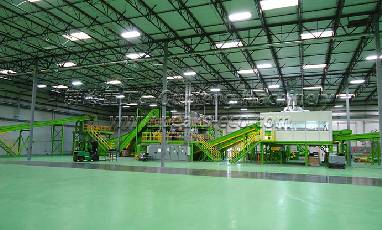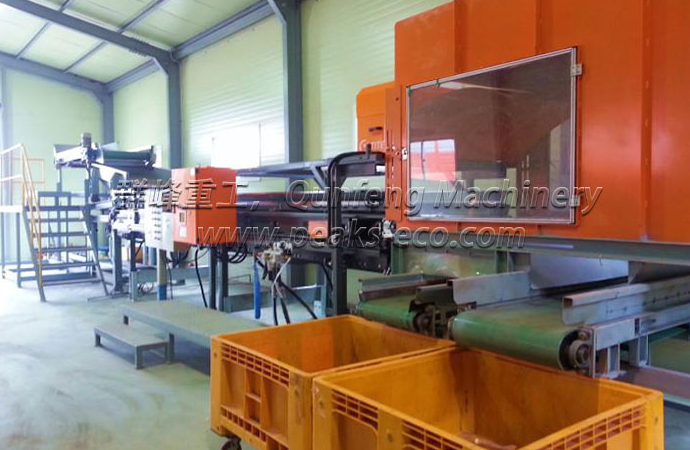(2) composting: scientific research on composting techniques began in the 1920s in the Netherlands. Composting treatment refers to the conversion of the organic matter in the garbage into stable humus under artificial control, so as to make it a soil improver that can be applied to the farmland. Composting technology is relatively simple, suitable for waste disposal with high perishable organic matter content, can make use of some components in waste resources, and the investment of waste disposal in the same quality is greatly reduced compared with the simple incineration treatment. Composting must be a process in which fresh waste is first sorted before the perishable organic components are fermented. At present, the number of waste compost plants abroad is on the decline, but the development of composting technology has not stopped, the most widely used is mechanical biotechnology (MBT).
(3) incineration method: incineration method is a high-temperature heat treatment technology, that is, with a certain amount of air and garbage in the incinerator for oxidation combustion reaction, the harmful toxic substances in the garbage in the high-temperature oxidation, pyrolysis and destruction. The incineration method has obvious capacity reduction effect, a high degree of innocency, short treatment period, small area, and has been widely used in developed countries. Incineration treatment technology is characterized by large capacity, good capacity reduction, complete innocency, the heat generated by the incineration process can be used to generate electricity to achieve the energy of waste. At present, there are more than 200 kinds of waste incinerators in use all over the world, but there are four representative types, which are widely used: fluidized bed incinerator technology, rotary kiln incinerator technology, grate incinerator technology, and waste pyrolysis gasification incinerator technology. At present, the most widely used domestic waste treatment is mechanical grate furnace, followed by fluidized bed furnace, rotary kiln incineration and pyrolysis gasification incineration account for a small proportion, mainly used for the treatment of hospital garbage and chemical waste. Domestic garbage treatment methods mainly include sanitary landfill, incineration, composting, etc. In order to achieve the best treatment effect, different regions will reasonably choose one or several methods according to local conditions to conduct garbage treatment.
At present, the proportion of landfills, compost, and incineration is about 92.2%, 2.6%, and 5.2% respectively. The proportion of recyclable resources and organic perishable compost is too small and the proportion of landfills is too large. The reason for this phenomenon is that the garbage is not completely or completely separated from the direct landfill, not only waste resources, occupy a lot of lands, but also increase the transportation cost, causing secondary environmental pollution.

Recycling Sorting Equipment
China garbage sorting machine msw manufacturer believes that garbage Sorting is the development direction of garbage disposal. In garbage classification collection or work on the classification of the sorting before landfill, recycling sorting equipment makes the use of living garbage in the useful material dosage, compost and even burning amount will be significantly improved, direct landfill quantity will be reduced greatly, not only save a large amount of land but also reduce the secondary pollution, can significantly improve the resource utilization of waste.

没有评论:
发表评论